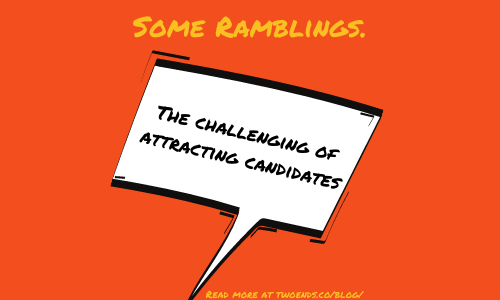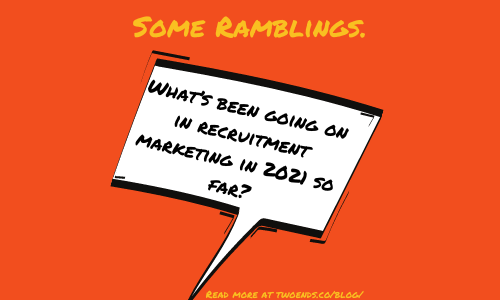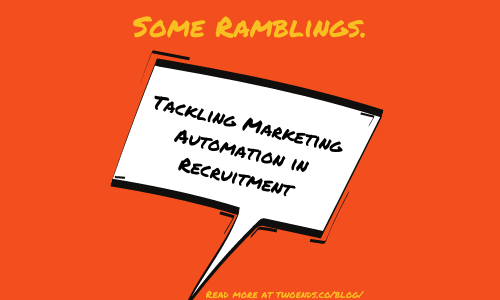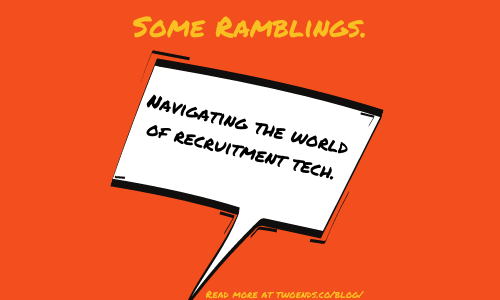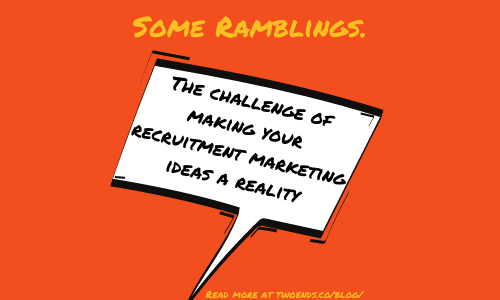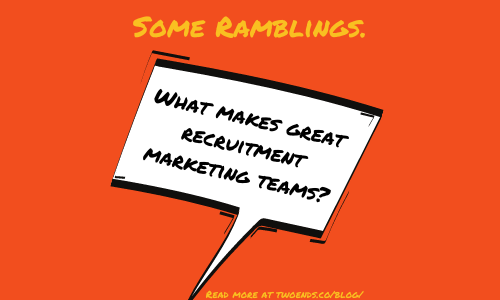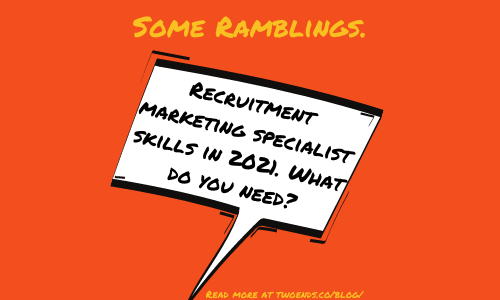Restrictions are lifted, people are returning to their offices in some form, life is starting to feel almost, dare we say it, normal.
The challenge that we, in recruitment, are faced with now is a shortage of talent and attracting candidates to jobs. The past 16-months has made people aware that there are other options out there, whether that’s remote working or different careers or industries. Now we’re back up and running the challenge to attract people to our jobs both internally and externally is ramping up.
So, what can we do? What’s clear is that there aren’t any quick fixes. Any instant solutions come with a price tag attached, and despite there being a clear cost/benefit it can be hard to argue the case. That means that we have to look at longer-term solutions and initiatives to capture attention and keep people engaged.
Job boards are the bread and butter of many companies. The total spend on them can be eye-watering if you take a minute to add it all up. That’s why we’re keeping an eye on programmatic approaches to job boards to better control spend. The idea is that your total spend will be put against the advert that needs the support most. So if you’ve got a target of 20 applications for one role, when that’s hit the budget will automatically be switched to the next role. Clever, right? It’s still early days but in terms of boosting visibility and attracting clients it’s an approach to keep an eye on.
Content is still king and queen
Content remains a fundamental tool for attracting candidates. Whether it’s social paid ads, gated content, podcasts or webinars content needs to be part of your strategy in one form or another.
Even if you’re looking to magic up applications now, a solid content strategy will set you up in the long run. If you’re continually collecting email addresses but aren’t nurturing them, even in a basic way, it could be argued, that you’re wasting your time in the first place. A basic linear automation helps build your brand awareness, keeps people opting-in to you keeping their data and keeps them warm for the future. That way if your consultants aren’t able to engage with all applicants they aren’t lost into oblivion, leaving you to start from scratch.
‘The Great Resignation’ brings a great opportunity to go back to basics with your content. How to guides on everything from resigning to updating your CV are having a moment. Easy to update, long-lasting and hitting the spot with candidates, this style of evergreen content is helpful to have in your back pocket for moments like this.
But don’t take your eye off of the content that adds value to those not looking for new roles. How can you place yourself as a subject matter expert? What’re the reasons for people to engage with your business regularly away from the recruitment process?
There’s no magic fix to attract candidates quickly. It’s a challenge most sectors are facing right now and the pressure will come on us at some point to produce quality candidates out of thin air.
Our advice? Start looking long-term. Get a content strategy in place, go back to basics and get some basic email nurture sequences set up. It might not help you attract candidates tomorrow but it’ll help you in the future.
This article was created off the back of a Lonely Marketers huddle with some of the most senior recruitment marketers in the industry representing £100m’s worth of turnover and established around the globe.
This is a regular feature of The Lonely Marketers community which TwoEnds is proud to power as we aim to complete our mission of building the best recruitment marketing teams there possibly can be. You can more recruitment marketing ramblings here.
